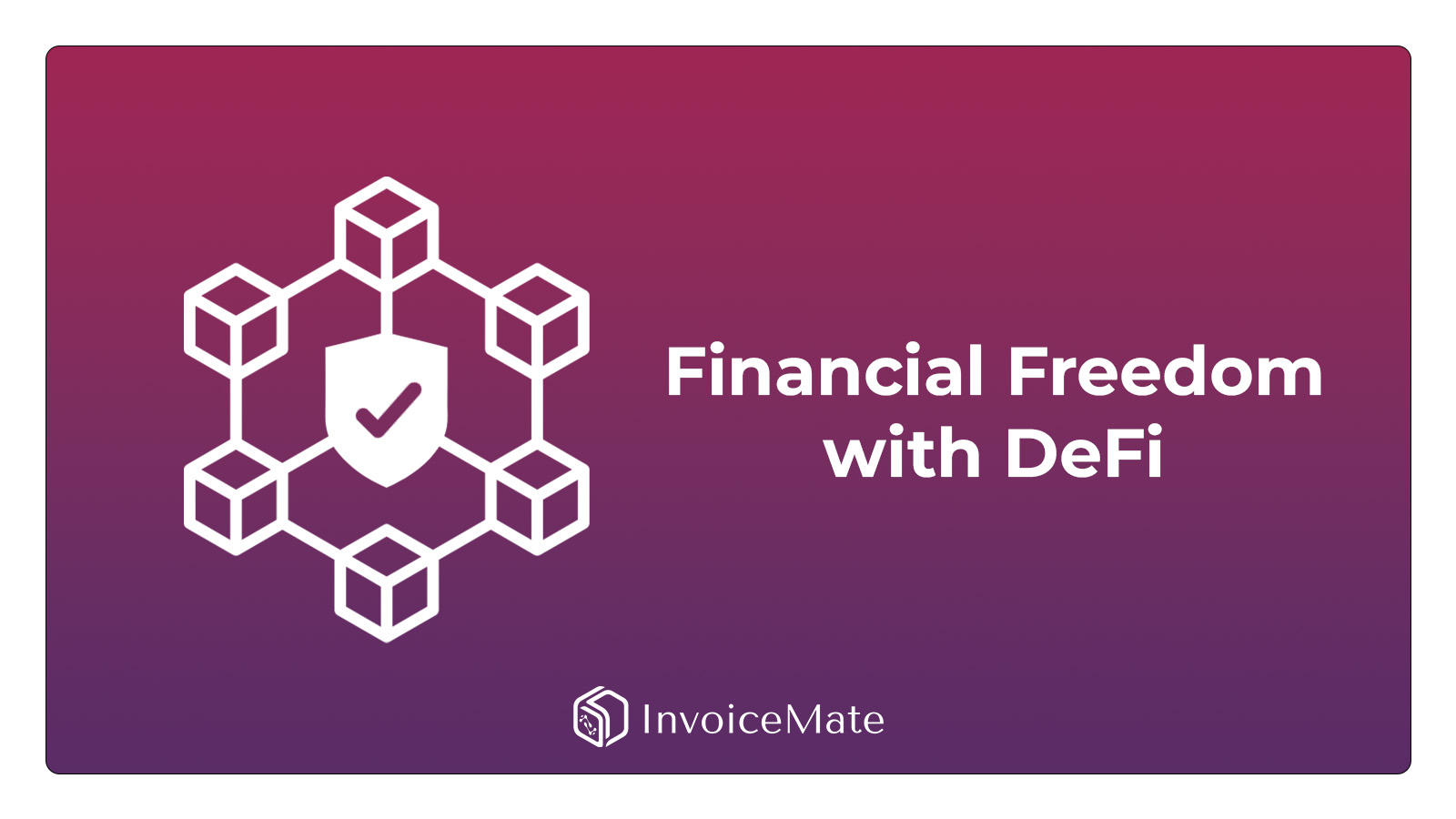Connect With Us

The financial landscape is ever-evolving. Disruption always happening here. DeFi is a revolutionary concept that is reshaping the banking and investment concept. Decentralized Finance, abbreviated as DeFi, is emerging as a disruptive force, challenging the limitations of conventional financial systems and empowering individuals and smaller businesses with unprecedented access to a wide portfolio of financial services. In these lines to follow, we will delve into the intricacies of DeFi, its key components, challenges, and the transformative potential it possesses for the future of finance.
What is Decentralized Finance (DeFi)
At its core, DeFi is a set of financial services and applications developed around blockchain technology, Contrary to traditional finance, which depends on centralized intermediaries such as banks and brokers, DeFi works in a decentralized manner, by enabling peer-to-peer transactions without the need for any of the traditional intermediaries.
Components of DeFi:
Smart Contracts:
Smart contracts are the digital contracts that are self-executing with the terms & conditions directly embedded into code. In the DeFi scenario, smart contracts automate different financial processes, eliminating the requirement for intermediaries and ensuring transparent and trusted financial transactions.
Decentralized Exchanges (DEX):
DEXs facilitate the trading of digital assets without relying on a central authority. Users retain control of their private keys and funds, reducing the risk of hacks associated with centralized exchanges.
Lending and Borrowing Platforms:
DeFi lending platforms allow users to lend their crypto assets and earn interest, while borrowing platforms enable users to secure loans by using their crypto holdings as collateral. This opens up financial opportunities for individuals who might not have access to traditional banking.
Stablecoins:
Stablecoins are cryptocurrencies pegged to the value of fiat currencies, providing stability in an otherwise volatile crypto market. They are often used as a medium of exchange in DeFi transactions.
Yield Farming and Liquidity Mining:
Yield farming involves using various DeFi protocols to maximize returns on crypto assets. Liquidity mining incentivizes users to provide liquidity to decentralized exchanges by offering rewards in the form of additional tokens.
Decentralized Autonomous Organizations (DAOs):
DAOs are organizations governed by smart contracts and voted on by token holders. They enable decentralized decision-making and governance within the DeFi ecosystem.
The Advantages of DeFi:
Financial Inclusion:
DeFi opens up financial services to a global audience, including the unbanked and underbanked populations who lack access to traditional banking infrastructure.
Permissionless Access:
Anyone with an internet connection and a crypto wallet can participate in DeFi, removing barriers to entry that exist in traditional finance.
Reduced Counterparty Risk:
Smart contracts automate transactions, reducing the reliance on centralized intermediaries and minimizing the risk of counterparty default.
24/7 Accessibility:
DeFi operates on blockchain networks that are active 24/7, providing users with constant access to financial services without dependence on traditional banking hours.
Innovative Financial Products:
DeFi encourages the creation of innovative financial products and services, allowing users to participate in yield farming, liquidity provision, and other decentralized activities.
Challenges, Limitations, and Risks
Smart Contract Vulnerabilities:
Despite the promise of smart contracts, vulnerabilities in code can lead to security breaches and financial losses.
Regulatory Uncertainty:
DeFi operates in a regulatory gray area, and the evolving regulatory landscape poses challenges for its widespread adoption.
Market Volatility:
The crypto market is known for its price volatility, and this volatility can impact the value of assets within the DeFi ecosystem.
Scalability Issues:
Blockchain networks, especially Ethereum, face scalability challenges, leading to congestion and high transaction fees during peak usage.
DeFi for The Future
Cross-Chain Compatibility:
Efforts are underway to enhance interoperability between different blockchain networks, allowing for seamless asset transfers and transactions across various DeFi platforms.
Regulatory Integration:
DeFi projects are likely to face increased scrutiny and regulatory attention. Some projects may seek regulatory compliance to build trust and legitimacy.
Institutional Participation:
As DeFi matures, institutional players may increasingly explore and participate in the ecosystem, bringing additional capital and legitimacy.
User-Friendly Interfaces:
The user experience of DeFi platforms is expected to improve, making them more accessible to non-technical users and enhancing overall usability.
Integration with Traditional Finance:
Some anticipate greater integration between DeFi and traditional finance, as institutional players explore ways to bridge the gap between these two distinct financial ecosystems.
End Note
Decentralized Finance represents a paradigm shift in how we conceive and interact with financial services. By harnessing the power of blockchain, DeFi offers a vision of a more inclusive, transparent, and accessible financial system. While challenges and risks persist, the ongoing evolution of the DeFi space holds immense promise for reshaping the future of finance. As this decentralized revolution continues to unfold, it prompts us to reimagine the very foundations of the financial world and consider the transformative potential embedded within the decentralized ethos of DeFi.
InvoiceMate and DeFi
InvoiceMate is the world’s first blockchain-powered invoice financing ecosystem. The reason behind blockchain adoption was our belief in the trust and transparency of the blockchain. InvoiceMate is expanding its horizons with the evolution of blockchain technology. DeFi, peer-to-peer lending, and RWA tokenized financing are the areas of special attention for InvoiceMate. InvoiceMate is working as a Gateway to RWA Debt financing with its Asset Origination System. nvoiceMate has already completed the facilitation of 3 SME lending through the TradeFinex platform run by XinFin Powering XDC Network.
